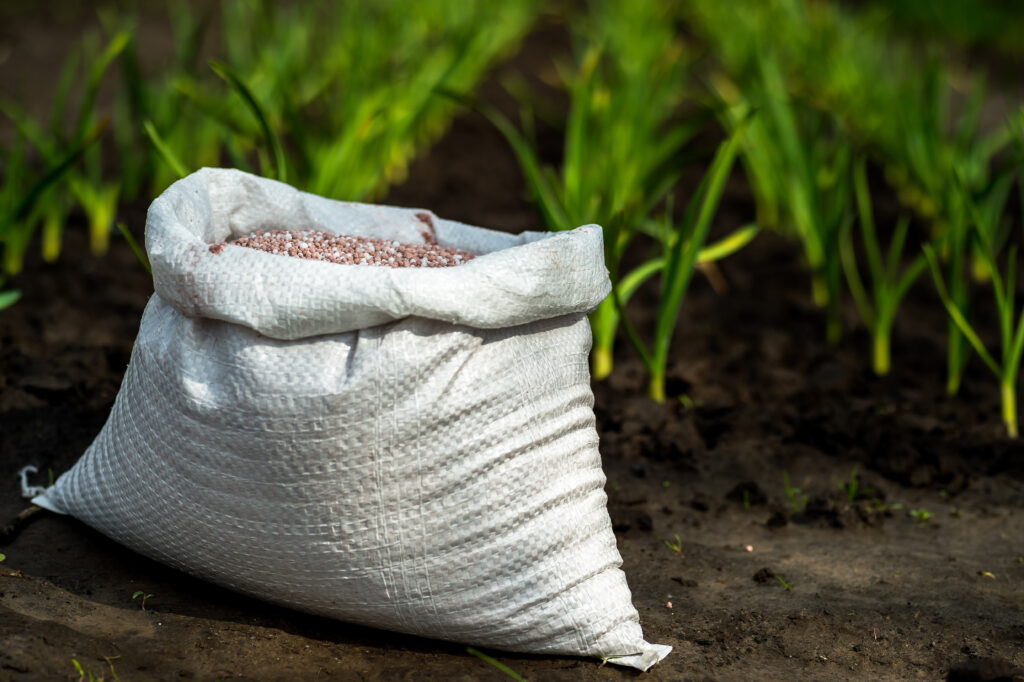
The production of powdered fertilizers plays a crucial role in modern agricultural processes, directly contributing to increased productivity and the overall quality of crops.
Thanks to powdered fertilizers, farmers can efficiently provide essential nutrients for proper plant development and production. Consequently, the chemical industry relies on various tools, including industrial sieving equipment for powdered fertilizers. These tools ensure the agrochemical production process’s efficiency and guarantee the final product’s high quality.
Below, you will find some details about the production of powdered fertilizers and the significance of screening in the agrochemical industry
How Are Chemical Fertilizers Produced?
The production of chemical fertilizers follows a technological process involving several stages. In broad terms, the process involves the following steps:
- Selection of ingredients:
Typically, nitrogen, phosphorus, potassium, and other secondary elements and micronutrients are chosen according to a specific formula. - Mixing and agitation:
The selected ingredients are mixed in the appropriate proportions and agitated to ensure a homogeneous distribution. - Caking, crushing, and granulation:
In this phase, the material is caked and then crushed to form uniform granules. - Primary screening:
The initial industrial screening of fertilizers aims to eliminate unwanted particles, retaining only those that meet established standards. - Drying:
The newly formed granules undergo drying to remove any remaining moisture and prevent agglomeration. - Secondary sieving:
After drying, sieving is repeated to further refine the granules, removing any non-standard grains or unwanted powders. - Coating:
Coating may be applied to enhance the aesthetics of the granule and ensure a controlled release of nutrients. - Packaging:
The final product is packaged in appropriate bags to protect it from moisture.
As evident, the industrial sieving of fertilizers is a repeated process in two stages of production. The quality and homogeneity of the product delivered to the consumer depend directly on sieving, enabling agricultural producers to obtain a fertilizer mixture with the exact amount of essential ingredients.
Screening Solutions In The Agrochemical Industry
Screening equipment is commonly employed in the production of fertilizers, both in powder and granular form. As screening machines can separate and classify various materials with a high level of efficiency, they make it possible to guarantee that fertilizers are of uniform size and meet quality standards. Although there are various types of screening equipment, there are two that are frequently used in industrial fertilizer screening:
- Vibrating Screen
Vibrating screening equipment generates circular, linear, or elliptical motion, effectively separating the chemicals involved in fertilizer manufacturing and ensuring quality control of the final product. Its high efficiency and capability to handle large quantities of material make it the ideal choice for the chemical industry. Learn more about how these systems aid in processing fertilizer in our detailed blog post. - Gyratory Sieving
The gyratory sieve comprises a rotating screen housed within a cylindrical drum. This mechanism allows the separation of coarse and fine parts of the material as it flows onto the screen. Characterized by low maintenance costs, it is particularly suitable for enhancing the quality of specialty chemicals such as fertilizer powders and granules.
Why Is It Important To Implement Equipment For The Industrial Screening Of Fertilizers?
Among other things, industrial screening of fertilizers enables the improvement of the efficiency of the production process, delivering benefits such as:
- Makes it easier to remove impurities to increase the quality of fertilizers
Thanks to the use of screening instrument equipment, the removal of unwanted particles and the precise classification of granule size in chemical fertilizers is possible. This ensures a consistent end product in terms of quality, with correct nutrient distribution. - Reduces waste of raw materials
In addition to helping to increase the level of production, it also manages to separate fertilizers that do not meet standards in granule shape and size, which are returned for reprocessing. This reduces waste and optimizes the use of raw materials.
Interested in finding out more about our industrial sieves? VibraScreener offers a complete range of products, suitable for the industrial screening of fertilizers and other chemical industry needs.

